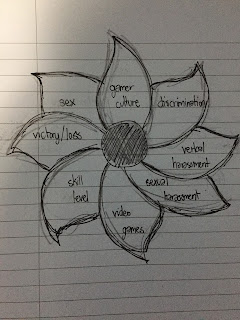I personally consider the fieldwork of information research
to take place anywhere where the researcher is engaged with or observing in the
environment with the people, objects, etc. that they are researching. In research, you often hear of the term “participant
observation,” or observing what you are researching in their natural environment
(Luker, 2010, 155). Keeping this in
mind, the question brought up by Alan this week that I find very interesting is
how traditional notions of fieldwork change when the field is online or
virtual. I think that while the
environment you are researching may not be a physical one, it is still a field
where observation and possibly interaction can take place all the same. You are still in an element’s “natural
environment,” therefore, if this is the field your research needs to take place
in it still seems to be a legitimate one.
My research, especially in my undergraduate studies, have generally been
in a physical environment. As an ECE, I
have done much research that has required me to be in children’s homes,
children’s classrooms, and so on. Now
that I am completing my MLIS, I found that my research requires me to change
this traditional method. I now want to
have an online catalogue as my field of research.
The books are still there, technically, they are just on an online space
rather than a physical library. I will
still get the same results that I would if I went to every branch and searched
through every book on their shelves for the ones I needed, it is just much
faster to search online. Ergo, the online world becomes my field of research.
Luker, K. (2010). Salsa dancing into the social sciences. Cambridge, MA: Harvard University Press.














